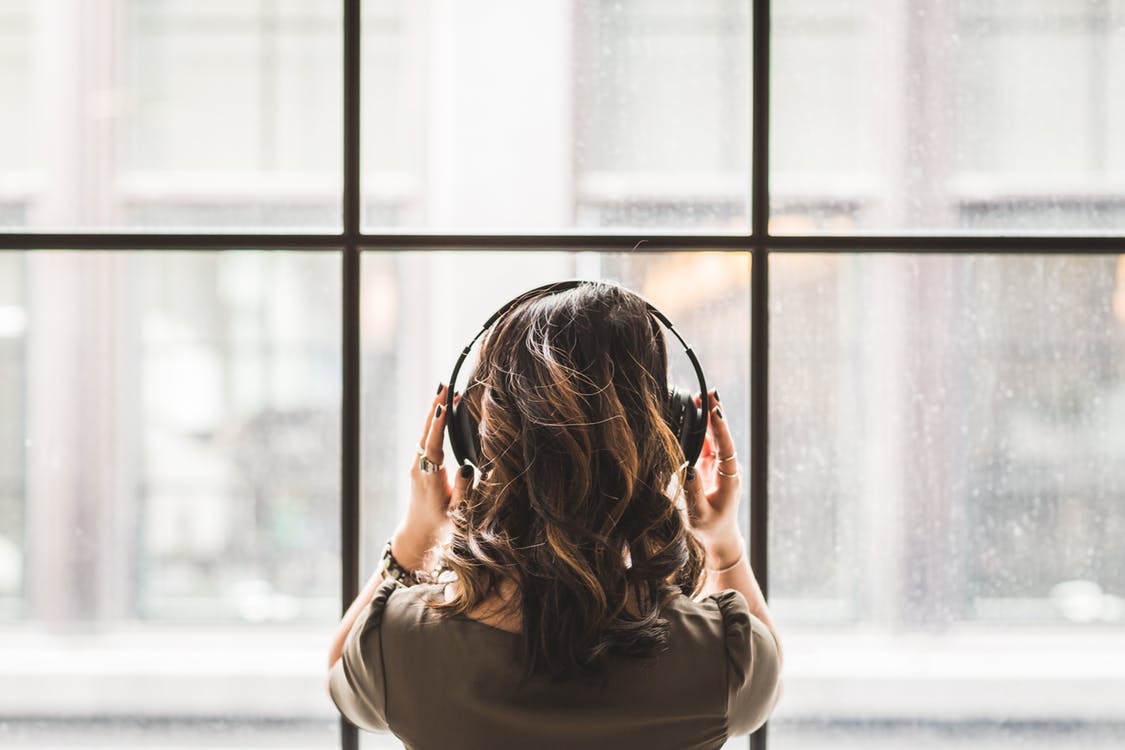Fibro Fix Blog — fibromyalgia

Menopause, Insomnia and Chronic Disease – Is There A Connection? 0
Sleep is one of the most vital elements of achieving good health and its importance cannot be overestimated.- David Brady
- Tags: chronic disease fatigue Fibro Fix Detox fibromyalgia Insomnia Menopause sleep Stages of Sleep

B12 – Brain Support for All Ages 0
Another vitamin that’s critical for generating and maintaining healthy tissue is B12.
Do You Really Have Fibromyalgia? 1
Are you one of millions of individuals silently suffering from widespread pain and fatigue?
Health Benefits of Grounding (Earthing) 0
Syncing your bare toes into wet grass, dirt, sand, or water is the latest trend in wellness. Known as “earthing” or “grounding,” when skin comes into contact with the ground, the human body becomes a sponge that soaks up negatively-charged electrons from the earth. This practice is quickly earning recognition as a novel way to protect your health and combat the insults of our current lifestyles. The modern concept of earthing made its debut in 2010 with the release of Clint Ober’s book, Earthing: The Most Important Health Discovery Ever? Nearly 12 years earlier Ober, a retired pioneer of the American cable TV industry, discovered that the same system of grounding used to stabilize telecommunications and wires could also stabilize the atoms in the human body, improving the function of all body systems.
Grounding has been practiced since the beginning of time when our ancestors walked around in bare feet or conductive leather moccasins or sandals. Perhaps this is one explanation for their longevity and good health. After the invention of rubber-soled shoes, a non-conductive barrier was erected between mankind and our greatest source of electrons – the earth. As our direct contact with the earth fades through the routine use of synthetic flooring and shoes, electromagnetic instability threatens our health.
All our cells are made of atoms. Atoms possess unique positive and negative charges that are based on the number of negative electrons or positive protons they carry. Many healthy atoms have a negative charge because they possess more electrons; however, these atoms can have electrons “stolen” from them, leaving them highly reactive and damaging. In this state, they are called free radicals. As damaging free radicals infiltrate cells and tissues, our health declines. The only way to stop this destructive process is by supplying the body with neutralizing antioxidants or a large dose of negative electrons, through grounding.
Grounding Neutralizes Free Radicals
Free radicals are generated through inflammation, infection, cell damage, trauma, stress, and our toxic environments. They force our immune system to respond to these threats. An active immune system produces more free radicals and soon our body is attempting to put out fires, but it has insufficient resources to do so. Additionally, industrialization and our increasingly technological world have thrown us into a labyrinth of electromagnetic fields, which disrupt the electrical balance of our cells. An abundance of free radicals, instable charges, inflammation and immune activation are responsible for some of our most threatening chronic conditions such as cancer, cardiovascular disease, diabetes, chronic pain syndromes, and autoimmunity.
Grounding is a simple, inexpensive means by which most of us can combat these destructive forces. The negative electrons absorbed from the earth quenches the free radicals, supports the immune system, and puts out the fires. Nobel Prize winner Richard Feynman described an umbrella affect created when we “earth.” He claimed that grounding equalized the electronic potential between the body and the earth, so the body becomes an extension of the earth’s magnetic field. This potential “cancels, reduces, and pushes away electrical fields from the body.”
Grounding Improves Sleep, Pain Management, and Stress
Grounding appears to improve sleep, help manage pain, and normalizes cortisol (a stress hormone) to reduce the stress response.
The nervous system is an electrical system of the body and influences all these activities. An influx of negative electrons from the earth has been shown to calm the nervous system by shifting the autonomic nervous system from the sympathetic, “fight-or-flight” branch toward the parasympathetic “rest-and-digest” branch.
Sleep and stress reduction are vital for managing pain, and decreasing the risks of many chronic health conditions. In a blind pilot study of 60 subject suffering from sleep disturbances and chronic muscle and joint pain for at least six months, grounding each night for one month produced a 74 to 100 percent improvement in quality of sleep, feeling rested upon waking, muscle stiffness and pain, chronic back and joint pain, and general well-being. Grounding helps to establish a normal cortisol level at night, which improves sleep, pain, and stress.
Grounding Improves Inflammation and Immunity
New studies also show that grounding positively affects the inflammatory response and the immune system, which could have far-reaching health benefits. We already know that grounding improves cortisol levels. Since a high cortisol, associated with chronic stress, leads to systemic inflammation in the body, grounding can certainly improve inflammation as it normalizes cortisol.
The influx of free negative electrons from the earth also combats positively charged free radicals generated by inflammatory factors as they respond to injury, infection, trauma or stress. As grounding neutralizes free radicals, the immune response calms. Healing proceeds at a faster rate in the absence of destructive free radicals. When the body is deficient in negative electrons, cells and tissue are vulnerable to destruction, leading to free radicals, systemic inflammation, and chronic immune activation. This environment increases risks for cancer, autoimmunity, infections, chronic pain conditions, and a general decline in health.
There are many ways to encourage grounding. A plethora of grounding materials from sheets to shoes exist. However, the most simple and inexpensive way for everyone to ground is to simply walk on the ground in your bare feet. Moisture is a superior conductor and therefore, wet grass, dirt, a beach or lake provides the best grounding experience. It is also helpful to know that leather, metal, cotton, and non-stained concrete are conductive. However, pavement, wood, plastic, rubber, synthetic or insulated materials will block the healthful negative charges from the earth.
Sources:
- Chevalier, G., Sinatra, S. T., Oschman, J. L., Sokal, K., & Sokal, P. (2012). Earthing: Health Implications of Reconnecting the Human Body to the Earth’s Surface Electrons. Journal of Environmental and Public Health, 2012, 291541. http://doi.org/10.1155/2012/291541
- Oschman, J. L., Chevalier, G., & Brown, R. (2015). The effects of grounding (earthing) on inflammation, the immune response, wound healing, and prevention and treatment of chronic inflammatory and autoimmune diseases. Journal of Inflammation Research, 8, 83–96. http://doi.org/10.2147/JIR.S69656

Music Soothes the Soul…and More? 0
“I often think in music. I live my daydreams in music. I see my life in terms of music. . . . I get most joy in life out of music.”
—Albert Einstein
You know how it is when you’re trapped in a traffic jam and there’s nowhere to go. There’s nothing you can do except wait for it to clear up. Getting upset and stressing out only makes things worse. Thank goodness for the radio, or your sleeve of CDs, or the hookup to play your phone’s music through the car stereo. All it takes is a couple minutes of listening to your favorite songs, and suddenly, you feel like you can handle the situation. Your heart rate slows back down to normal, your muscles are more relaxed, and you’re no longer gripping the steering wheel as if you’re choking the life out of it.
Either that traffic snarl isn’t as bad as you thought, or music has seemingly magical calming properties for both the mind and the body. If you’re a betting person, put your money on the latter. Listening to music impacts the reward and pleasure pathways in the brain. Specifically, it may trigger the release of dopamine, the neurotransmitter most closely associated with these feelings. This has profound implications for health and wellbeing, since listening to music is a non-toxic, non-invasive, and side-effect-free way to potentially boost mood, reduce anxiety, reduce subjective feelings of pain, and improve overall surgical outcomes.
The effects of music on your body are not all in your head. Or, depending on how you look at it, they are in your head—or, rather, your brain. But don’t underestimate the power of the central nervous system to influence the entire body. Studies have shown that listening to relaxing, pleasant music is effective for reducing pain and improving mobility among fibromyalgia patients—with fibromyalgia being a condition that is notoriously difficult to treat.
The beneficial influence of music in many aspects of healthcare are fairly well recognized. Patients who listened to music before, during and after eye surgery had lower rates of perceived stress and higher ratings of coping, and also had lower heart rates and blood pressure before, during and after the procedures, compared to patients who did not listen to music. So there were subjective benefits, as assessed by the patients, themselves, and these were backed up by measurable, objective parameters. Reviews and meta-analyses show that, overall, listening to music is beneficial for helping to reduce pre-operative anxiety, and also reduces post-operative pain and anxiety. Lower anxiety surrounding surgical procedures can aid wound healing, reduce risk of infection and aid recovery in general.
Emotions induced by enjoyable music have a cascade effect for physical wellbeing, and researchers have said that “strongly felt emotions could be rewarding in themselves in the absence of a physically tangible reward or a specific functional goal.” Imagine that: a rewarding experience with no adverse side-effects, no contraindications, and—best of all—no calories!
The enjoyment of music, however, is not a standard-issue trait coded in our DNA. While most of us enjoy music—in fact, some researchers believe our affinity for music has survival advantages so that we have been evolutionarily conditioned to enjoy music—we don’t all enjoy it in the same ways. Music stimulates people’s reward centers to different degrees, with some individuals experiencing no pleasure at all—a finding researchers call “music anhedonia.” Some people simply don’t find music as enjoyable as other people do.
Of course, the type of music people enjoy varies widely, and different kinds of music are appropriate for different situations. According to a study on the neurochemical effects of music, “Stimulating music produces increases in cardiovascular measures, whereas relaxing music produces decreases”—and these are patterns observed even in infants, among whom socialization has not yet conditioned them to associate different types of music with different activities. The cardiovascular effects of music are mediated predominantly by tempo (speed/pace), with slow music and musical pauses leading to decreases in heart rate, respiration and blood pressure, and faster music increasing these. There’s a reason they don’t play Bach during spin classes, and they don’t play heavy metal during yoga!
Sources
- Garza-Villarreal EA, Wilson AD, Vase L, et al. Music reduces pain and increases functional mobility in fibromyalgia. Frontiers in Psychology. 2014;5:90.
- Fernell J. Listening to music during ambulatory ophthalmic surgery reduced blood pressure, heart rate, and perceived stress. Evid Based Nurs 2002;5:1 16
- Salimpoor VN, Benovoy M, Longo G, Cooperstock JR, Zatorre RJ. The Rewarding Aspects of Music Listening Are Related to Degree of Emotional Arousal. Lauwereyns J, ed. PLoS ONE. 2009;4(10):e7487.
- Chanda ML, Levitin DJ. The neurochemistry of music. Trends Cogn Sci. 2013 Apr;17(4):179-93.
- Hole J, Hirsch M, Ball E, Meads C. Music as an aid for postoperative recovery in adults: a systematic review and meta-analysis. Lancet. 2015 Oct 24;386(10004):1659-71.
